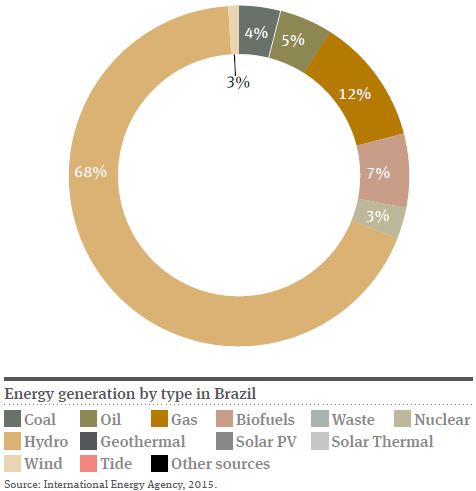Law 12.187/2009 established the National Policy on Climate Change (NPCC). The NPCC establishes the expansion of renewable and clean energy usage as a part of the national strategy for medium-long term.
The Incentive Programme for Alternative Electric Energy Source – PROINFA is also highlighted in the national plan. It was created in 2002 to encourage the development of wind energy, biomass and small hydro, which has been successfully implemented, particularly for wind power which increased its installed capacity from 22MW in 2002 to the current 7.1GW.
Biofuel is the energy source with maximum tax incentives for importers and producers, offering significant deductions in two tax categories: theSocial Integration Program and the Contribution to the Social Security Fund.
In 2012 a new Electric Energy National Agency resolution (482/2012) came into force, to facilitate the connection of small renewable power generation plants to the distribution grid. The mini and micro generators can request the local distributor for grid connection.
The resolution also proposes the creation of an energy compensation system (net metering), whereby the owner of a small plant does not need to consume all the energy produced at the time of generation. Excess electricity can be fed into the grid giving the generator energy credit that can be used within 36 months.
One of the major challenges was transmission infrastructure, which created delays in grid connection for renewable energy developers. This was overcome through a new regulation. Developers who seek to build renewable energy projects firstly bid for the necessary interconnection to the mains and subsequently bid for the supply of power.



